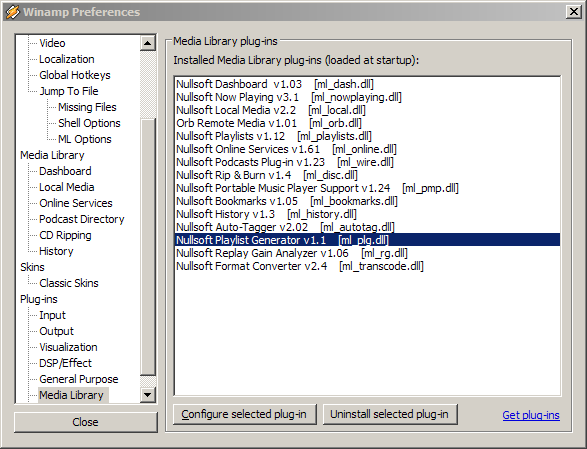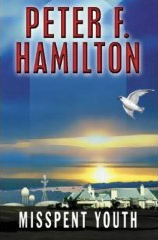The Winamp Playlist Generator

A while ago there was this site called Pandora (similar to lastFM, but better) that tried to match songs based on their internal structure not user preference. By choosing which songs you liked or you didn't like it would guess your preferences and try to play only songs you would listen to.
Apparently Winamp has a little known (or blogged) addin that does this. It is called the Nullsoft Playlist Generator and comes bundled with WinAmp. This is how you use it:
- Open Winamp and go to Media Library
- Create a playlist (or more) and add all your songs there
- Right click on the playlist and select Send To: Add to Local Media
- Go to Options, Preferences, Plug-ins, Media Library and click on Nullsoft Playlist Generator
- Click on Configure selected plug-in, select your options and click Scan. I recommend the background scanning option.
- After the scan is complete (or during it) you can right click on any song and select "Play similar song to..." and you will listen to songs that this software thinks are similar
That's it. The analysis is pretty superficial, but still better than nothing. It is perfect when you have gigs of songs and you don't want to browse forever, selecting which one you want or you don't want.









